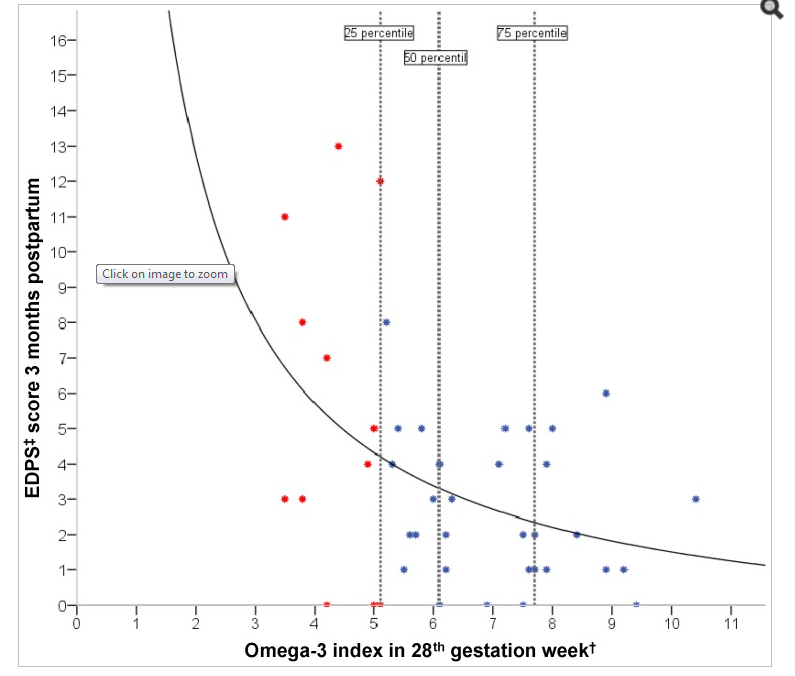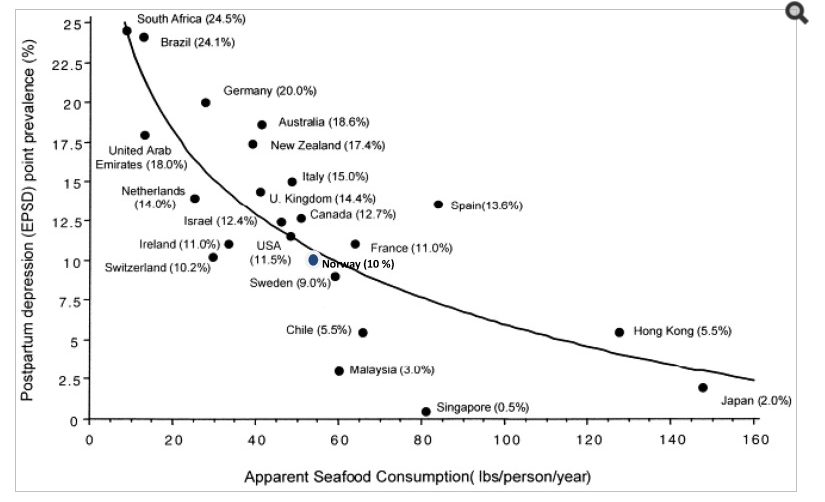Published on August 3, 2017
Postpartum Depression
According to the National Institute of Mental Health, postpartum depression affects between 7-13 percent of all mothers. Postpartum depression can occur between a few weeks after birth, all the way until a year after birth. It is characterized as a condition which does not allow the mother to successfully accomplish daily tasks.
One scientific way to measure postpartum depression is through the Edinburgh Postnatal Depression Scale (EPDS) with scores ranging from 0-30. A value of greater than or equal to ten usually equates to having postpartum depression.
Measure Omega-3 Index Levels
A study measured Omega-3 Index Levels (the same measurement provided in D*action+Omega-3) and found a direct correlation between index levels and postpartum depression. The study was done in Norway, using women from a single community. This was not a trial – no supplements were given. Instead, Omega-3 Index levels were measured at 28 weeks gestation and then the women were assessed using the EPDS scale three months after delivery.
What Did They Find?
Below is the scatter plot of data from the study. During analysis, they determined that the best fit line was not linear at all, but the line shown below. Overall, only 6.9% of the women in the study had EPDS values of 10 or higher – but you can see that the higher the Omega-3 Index, the lower the EPDS score. This paper describes the ‘bend’ in the curve as a 5% Omega-3 Index, in others words the value for which you want to be above to greatly reduce the risk of postpartum depression.

Figure 2 – Markhus et al.
But Norway Eats Lots of Fish Already
True! And the study authors knew that. Again, since this was not a trial, no supplements were given, but they did collect information on seafood consumption and dietary supplements. The average frequency of a seafood dinner was 1.2 times a week, seafood spread on bread 1.1 times a week, and taking an omega-3 supplement 4.9 times a week. This figure from previous research on seafood consumption and postpartum depression was included in the discussion section of the paper and is similar to what was found with the Omega-3 Index – the countries that eat the most fish have lower average postpartum depression scores (10 or higher on EPDS scale).

Figure 5 – Markhus et al.
Conclusion
It is good to have enough omega-3 during pregnancy to fuel infant development, primarily brain development. It also appears to be good for the mother’s brain. Test, don’t guess. Are you getting enough? Aim for an Omega-3 Index of 5% or higher.
References
Low Omega-3 Index in Pregnancy Is a Possible Biological Risk Factor for Postpartum Depression
Maria Wik Markhus et al.
PLOS ONE
July 2013
Read Paper

